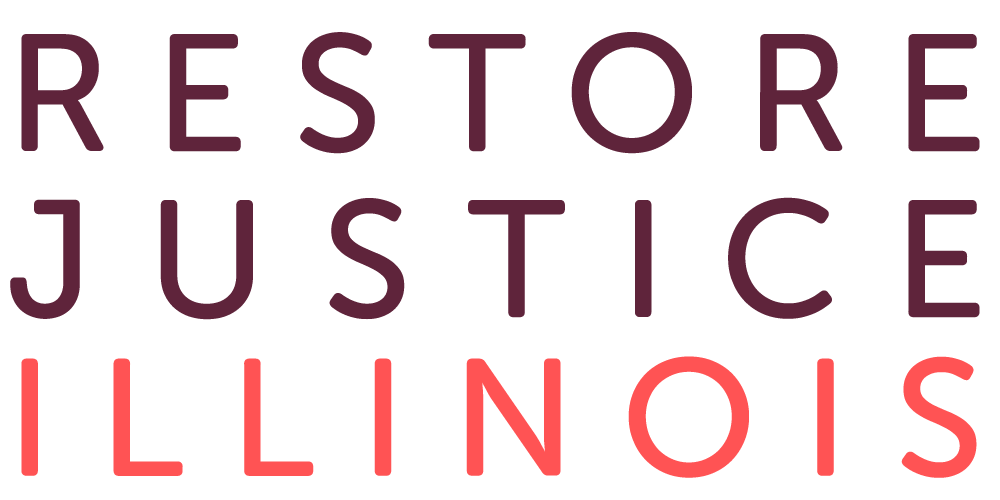ANNA WILHELMI – 2020
DEMOCRATIC CANDIDATE FOR DEKALB COUNTY STATE’S ATTORNEY
QUESTION 1: These are several areas of criminal sentencing law that help fuel long-term incarceration. While the General Assembly debates these bills, the views of State’s Attorneys are always central to the discussion. That’s why we’d like to ask you for your opinion publicly since it carries so much weight with legislators. Please share your thoughts on each one of these.
Mandatory gun enhancements: Judges must add 15 years to the sentence of someone who possesses but does not use a firearm in the commission of a crime. In 2015, a new law made these enhancements discretionary for juveniles, but not adults. HB4376 (Ford) would make those mandatory gun enhancements discretionary for all offenders. (Do you support, oppose, or are you neutral on the bill? Thoughts welcome.)
I support this bill. Mandatory enhancements of sentences tends not to deter criminal activity and tends to be disproportionate to the severity of the actual offense.
Felony-murder rule: Illinois has a broad felony-murder statute that allows prosecution of individuals for murder in cases where they did not commit or plan to commit a murder, but committed another forcible felony that resulted in someone’s death. HB1615 (Slaughter) and SB2292 (Peters) would narrow the scope of Illinois’s felony-murder law. (Do you support, oppose, or are you neutral on the bill? Thoughts welcome.)
I support this bill. The felony-murder rule can be and is applied to cause what I consider to be an unjust outcome. This bill will bring into alignment Illinois’ felony-murder statute with a majority of other states so that only those culpable of murder are held accountable.
Accountability: Illinois law utilizes a theory of accountability throughout its criminal statutes. This theory allows individuals to be convicted of the same, more serious crime as their co-defendant/s in an underlying felony, even if they did not directly perpetrate or plan to perpetrate the more serious crime. If convicted, people who are accountable serve the same sentence as the primary actor in the offense. (Do you think we should abolish accountability theory, narrow the usage of accountability theory, or keep accountability as is?)
I believe that the accountability statute has potential and is applied where the outcome can be unfair and unjust. Therefore, I would support limitations being placed upon the accountability statute.
Earned sentencing credits: A 1998 law called Truth in Sentencing reduced or removed the opportunity for incarcerated individuals to earn “time off for good behavior.” The law has led to much longer actual “time served” in Illinois prisons and has removed incentives for rehabilitation. (Do you think we should restore earned sentencing credits to pre-1998 levels, restore some earned sentencing credits, or keep sentencing credits the same? General thoughts welcome.)
I would support earned sentencing credits. We have a major incarceration issue in this country. We need to instead focus on rehabilitation and resources so that individuals who will eventually come out of prison will be productive members of society.
Mid-sentence parole review: Illinois has true “parole for release” for only a tiny fraction of the prison population (those of any age convicted before the abolition of parole for release in 1978, and those under age 21 convicted after June 2019, pursuant to Public Act 100-1182, the Youthful Offender Parole Law). The remainder of incarcerated people in Illinois do not have access to a parole review hearing at any point in their term of incarceration. What most call parole in Illinois is a post-incarceration period of Mandatory Supervised Release, which is added to a sentence and is not a path to be released earlier than the original sentence.(Should we restore parole as a system for early release broadly, or should we continue with no general parole where the incarcerated serve the entire sentence received no matter what circumstances may have changed?)
I would support a parole system, as opposed to MSR, as that would give incentive for persons incarcerated to change their behavior. Incarceration is very costly, and parole is a less costly alternative to incarceration, yet is still a supervised alternative. Further, since parole was eliminated in Illinois, prison populations have increased signficantly based in part due to this issue.
Abolishing life without parole sentences for all juveniles. Unlike the majority of states, current law in Illinois still allows for a juvenile to receive a life sentence without the possibility of parole, despite young people having unique ability to change. A 2019 law implemented mid-sentence parole review for most individuals convicted of serious offenses before they turned 21. HB5670 (Mayfield) would expand on that law to prohibit life without parole sentences for anyone under the age of 21 when their crime was committed. Juveniles could still serve life in prison if the Prisoner Review Board rejects their application for early release. (Do you support, oppose, or are you neutral on this bill? Thoughts welcome.)
I would support this bill. I agree that science suggests children do have the unique ability to change, and are generally amenable to treatment and indeed should not be subject to a life term without parole.
QUESTION 2: Proactive commutations by the Governor. Our current state prison population of 36,000 remains stubbornly high, largely because Illinois abolished mid-sentence parole review in 1978; people who otherwise might have been released from prison due to rehabilitation no longer have that option. The State Constitution gives the Governor authority to commute any sentence and release any person. Today, commutation is a reactive process. An incarcerated individual must submit a petition for review to the Governor, who tasks the Prisoner Review Board with creating a private recommendation, which the Governor may or may not act upon. Given the lack of mid-sentence parole review since 1978, do you think Governor Pritzker should make the reactive commutation system more proactive to systematically consider commutations? Potential groups to consider for proactive commutation include the elderly (over 65), those who have had excellent records while in prison, or those who have demonstrated remorse and have been rehabilitated but still face decades of incarceration. (Do you think Governor Pritzker should proactively review incarcerated individuals serving long sentences and assign them to the Prisoner Review Board to determine whether their sentences ought to be commuted given their unique circumstances? Do you think he should not do that? Thoughts welcome.)
Yes, I think Governor Pritzker should proactively review prisoners who are in these three groups, and after recommendations by the Prisoner Review Board and other evidence as necessary make a determination as to whether to commute that person’s sentence.
QUESTION 3: General ideas and personal anecdotes. When you think about our criminal legal system in Illinois (from policing to prosecution to sentencing to incarceration to re-entry), what do you see as the biggest opportunities for improvements in the next two years? Please consider this an open-ended question to share any important anecdotes that inform your perspective or other ideas for reform or improvements that deserve more attention.
I think the biggest opportunity for improvements would be the address of systemic racial bias in our policing and court system as well as excessive use of force by law enforcement upon our community members. Studies suggest that black and brown people are subject to over policing, brutality, harsher sentencing, and less alternatives. Law enforcement must be held accountable so that we can build community trust and community members and police will be safer as a whole. Further, we must address the cash bail system and eliminate what I consider to be a discriminatory practice toward poor folk, and beneficial to the wealthy. We must expand sentencing alternatives and pretrial diversion opportunities and reduce the massive incarceration structure we have built in this country.
QUESTION 4: Voting rights while incarcerated. Should people who are incarcerated in prison be allowed to vote? Those in county jails (before they are sentenced) are allowed to vote. Vermont and Maine allow those serving a sentence in state prison to vote.
All adult persons should have the right to vote.
QUESTION 5: There is an ongoing debate over whether the General Assembly has the constitutional authority to pass a law reducing criminal sentences for people already incarcerated. Those who say it’s unconstitutional believe the only two methods to modify sentences are through executive clemency, or a legal procedure called revestment, wherein the prosecution and defense agree to bring the case back before a judge. On the other hand, some argue while those are two legitimate avenues to modify existing sentences, they are not the exclusive avenues, and if the General Assembly wishes to pass a law that reduces existing sentences, the General Assembly is not constitutionally precluded from doing so. In other words, revestment is a path toward modifying existing sentences and it doesn’t preclude legislative action. Please share your opinion on whether the General Assembly has the constitutional authority to pass criminal sentencing changes that affect the currently incarcerated. (This question is particularly relevant to State’s Attorneys, as the leaders of the community of State’s Attorneys have aggressively taken the position that any bill the General Assembly considers that would potentially reduce sentences for currently incarcerated people is unconstitutional.)
I believe that the Illinois Constitution supports the General Assembly’s Constitutional authority to pass a law that reduces current criminal sentences of individuals already incarcerated. This is well within the legislatures purview of power as the legislature creates those laws for which sentences are in fact imposed.

